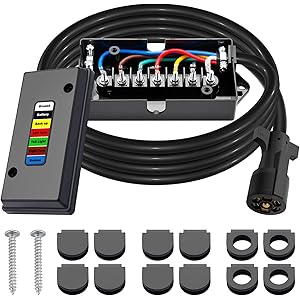When it comes to trailer homes, also known as manufactured homes, I often find myself pondering a question that many potential homeowners might overlook: Do trailer homes have basements? The answer to this question isn’t as straightforward as one might think, and it opens up a broader discussion about the nature of trailer homes, their construction, and how they fit into the modern housing landscape.
Understanding Trailer Homes
Before diving into the specifics of basements in trailer homes, let’s first clarify what a trailer home is. Typically, a trailer home is a prefabricated structure built in a factory and transported to its site. These homes come in various styles and sizes, ranging from single-section to double-section models. One of the key features that set them apart from traditional homes is their mobility.
The Basics of Trailer Home Construction
Trailer homes are constructed with a focus on efficiency and affordability. They are often built on a steel frame and are designed to be lightweight, allowing for easy transport. This construction method affects the potential for a basement in several ways:
- Foundation Type: Most trailer homes are placed on a pier-and-beam foundation or a concrete slab, which does not typically allow for a basement.
- Weight Considerations: Adding a basement would increase the weight of the home, making it less mobile and practical.
- Design Limits: The design and layout of trailer homes usually prioritize living space above ground rather than below.
Do Trailer Homes Have Basements?
The short answer is: no, trailer homes generally do not have basements. The nature of their construction and mobility makes basements impractical. However, there are some nuances worth considering.
Exceptions to the Rule
While the majority of trailer homes do not feature basements, there are exceptions where some custom-built models may incorporate a basement option. These situations are rare and often require specific site conditions:
- Site-Built Foundations: In some cases, a trailer home can be placed on a permanent foundation that allows for a basement. However, this often involves significant modifications and might no longer classify the structure as a traditional trailer home.
- Hybrid Models: Some manufacturers offer hybrid models that combine features of traditional homes with those of trailer homes, potentially including a basement.
Why Basements Are Rare in Trailer Homes
Understanding the reasons why basements are rarely found in trailer homes can help clarify their unique design philosophy:
- Cost Efficiency: One of the primary appeals of trailer homes is their affordability. Adding a basement can substantially increase construction costs, which may deter buyers.
- Mobility: The ability to move a trailer home is a significant selling point. A basement would compromise this mobility and the trailer’s overall purpose.
- Local Building Codes: Many areas have specific building codes that dictate how homes, including trailer homes, must be constructed. These codes often do not accommodate basements in mobile homes.
The Benefits of a Basement
Though most trailer homes lack basements, it’s essential to explore the benefits that a basement can provide in traditional homes:
- Additional Space: A basement can serve as extra living space, storage, or even a recreational area.
- Increased Home Value: Homes with basements often have higher resale values due to the additional square footage.
- Protection from Weather: Basements can provide a safer space during severe weather events, offering shelter from storms.
Alternatives to Basements in Trailer Homes
For those of us who love the idea of living in a trailer home but want some of the benefits associated with basements, there are alternative solutions:
- Storage Solutions: Consider using outdoor storage sheds or garages to make up for the lack of basement space.
- Use of Attics: Some trailer homes have attics that can serve as additional storage or living space.
- Elevated Designs: Look for models designed with elevated features that provide additional under-home storage space.
Case Studies: Trailer Homes with Unique Designs
While most trailer homes do not have basements, there are examples of unique designs that incorporate innovative solutions:
Custom Built Models
One notable example is a custom-built trailer home that utilizes a raised foundation, allowing for ample storage beneath while maintaining the mobility aspect. These homes can often be tailored to include features like:
- Built-in storage cabinets
- Outdoor access to the under-home space
- Improved ventilation and insulation
Community Designs
Some trailer home communities have embraced the idea of shared facilities, where residents can access communal storage or recreational areas. This approach makes it possible to live comfortably in a trailer home without needing a basement.
Statistics on Trailer Home Ownership
Understanding the demographics and trends in trailer home ownership can provide context to the discussion about basements:
- As of 2020, approximately 22 million Americans live in manufactured homes, representing about 6.7% of the total housing market.
- The average cost of a new manufactured home is around $110,000, making it an affordable option for many families.
- Rural areas see higher concentrations of trailer homes, often due to lower land costs and zoning regulations that favor mobile home communities.
The Environmental Impact of Trailer Homes
As we discuss the merits and limitations of trailer homes, it’s essential to consider their environmental impact:
- Energy Efficiency: Many modern trailer homes are built with energy-efficient materials, reducing their carbon footprint.
- Land Use: The compact nature of trailer homes requires less land, making them a more sustainable option if placed in well-planned communities.
- Resource Conservation: By utilizing prefabrication techniques, manufacturers can minimize waste and streamline the building process.
Final Thoughts: The Future of Trailer Homes
As I reflect on the question of whether trailer homes have basements, it becomes clear that the answer lies beyond the simple yes or no. While basements are rare due to construction methods and mobility considerations, the future of trailer homes holds promise for innovative designs and sustainable living solutions. Whether you’re drawn to the affordability, mobility, or unique community aspects of trailer homes, there is much to explore.
FAQs
Can I add a basement to my trailer home?
While technically possible, adding a basement to a trailer home is generally impractical and may affect its mobility and classification. It’s best to consult with a professional before considering significant modifications.
What are the best alternatives to a basement in a trailer home?
Consider utilizing outdoor storage, attics, or elevated designs to maximize space while living in a trailer home.
Are there any benefits to living in a trailer home without a basement?
Absolutely! Trailer homes offer affordability, mobility, and a unique sense of community that can outweigh the lack of basement space.
If you found this article insightful, I encourage you to share your thoughts and experiences regarding trailer homes. Don’t forget to subscribe to our newsletter for more informative content, and share this article with your friends and on social media! Together, let’s explore the world of housing and find solutions that work for everyone.
CheeMuii 7 Way Trailer Wiring Harness Kit 8 FT Trailer Cord with 7 Pin Trailer Plug and Junction Box Kit Premium Light and Brake Wiring Wires for Trailer RV
$24.99 (as of November 16, 2025 07:53 GMT -03:00 - More infoProduct prices and availability are accurate as of the date/time indicated and are subject to change. Any price and availability information displayed on [relevant Amazon Site(s), as applicable] at the time of purchase will apply to the purchase of this product.)
Sign up for our newsletter and stay up to date with exclusive news
that can transform your routine!





